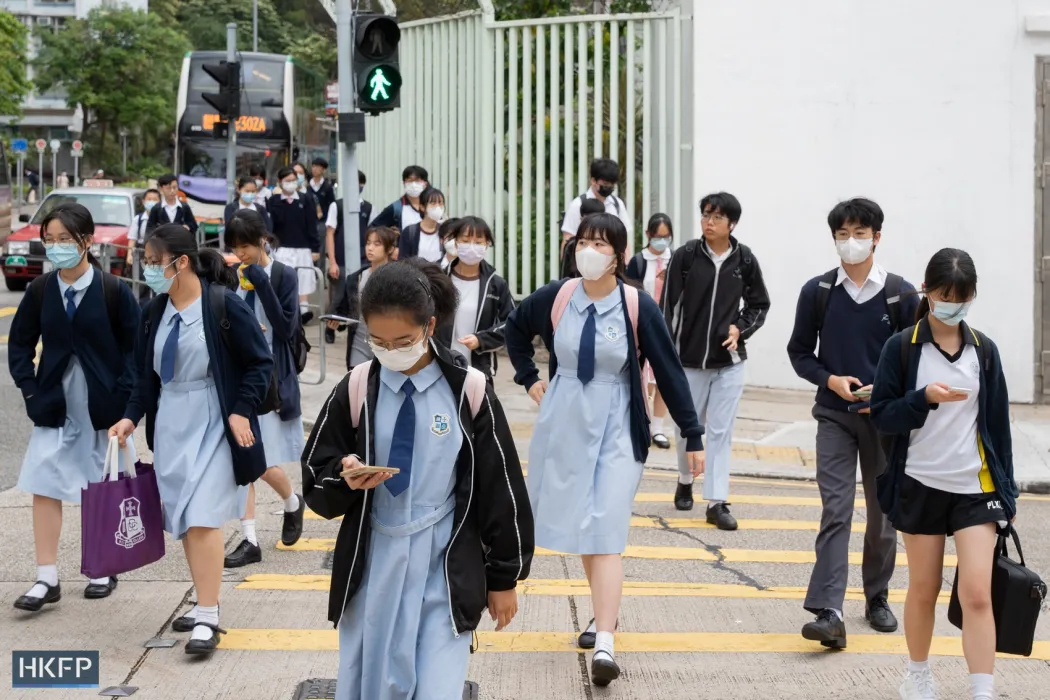Over 70 per cent of Hong Kong students have said they would prefer it if their parents did not post photos and stories of them on social media platforms, with some saying it made them feel embarrassed or even angry, a survey conducted by a youth group has found.

The Young Men’s Christian Association (YMCA) interviewed 1,094 primary and secondary students and 793 parents from September to November last year, releasing its findings during a press conference on Sunday.
More than 80 per cent of parents said they had posted about their children on Facebook, Instagram, WeChat or in WhatsApp groups. They mostly shared photos or videos of their children, sometimes with text descriptions.

While most parents acknowledged that sharing such content affected the privacy of their children, nearly 60 per cent said they did not think it would trigger negative emotions in their offspring.
However, 72.2 per cent students reported that they would rather content of them was not shared on social media platforms.
Over 40 per cent of students said they felt “embarrassed” by their parents posting about them online. Moreover, around 28 per cent said it made them feel “annoyed” while some 23 per cent said it made them “angry.”

Phoebe See, coordinating secretary of YMCA, said during the press conference on Sunday that some students had reported in a focus group following the survey that they had been made fun of or even bullied after classmates had seen their parents’ posts.
“Sometimes parents think their child is ‘super cute’ and then post about them online, but it will probably make the kid feel ‘super scared’,” See said in Cantonese. “When the child grows up and finds that every tiny thing about them has been shared online, and things concerning their privacy can be permanently traced online, that must be embarrassing.”

See suggested parents be more sensitive before sharing. “Whenever there is an urge to upload photos of your child, it’s important to first consider what needs of yours are not being fulfilled. Is it a need for validation from others?… Or is the intimacy with your child the most important? ” See said. “The love for your child doesn’t necessarily need to be validated by ‘likes’ or approval from others.”
On the other hand, some students said during focus group that it made them happy when their parents posted about them, because it made them feel “famous” and meant more attention was paid to them.
Children’s consent
The youth group also urged parents to obtain their children’s consent before posting about their progeny online.
Hermina Ng, the commissioner from the Office of the Privacy Commissioner for Personal Data, said during the press conference that there was “no button for permanent delete” on the internet.

“Once personal information is made public online, it can potentially be permanently stored, reposted, or even misused by malicious individuals. It can become a tool for cybercriminals or online bullies to exploit and ‘doxx’ individuals, revealing their private details,” Ng said.
Among the students surveyed, nearly 63 per cent said their parents should ask permission before posting about them on social media.
Support HKFP | Policies & Ethics | Error/typo? | Contact Us | Newsletter | Transparency & Annual Report | Apps
Help safeguard press freedom & keep HKFP free for all readers by supporting our team

LATEST FROM HKFP
HKFP has an impartial stance, transparent funding, and balanced coverage guided by an Ethics Code and Corrections Policy.
Support press freedom & help us surpass 1,000 monthly Patrons: 100% independent, governed by an ethics code & not-for-profit.










